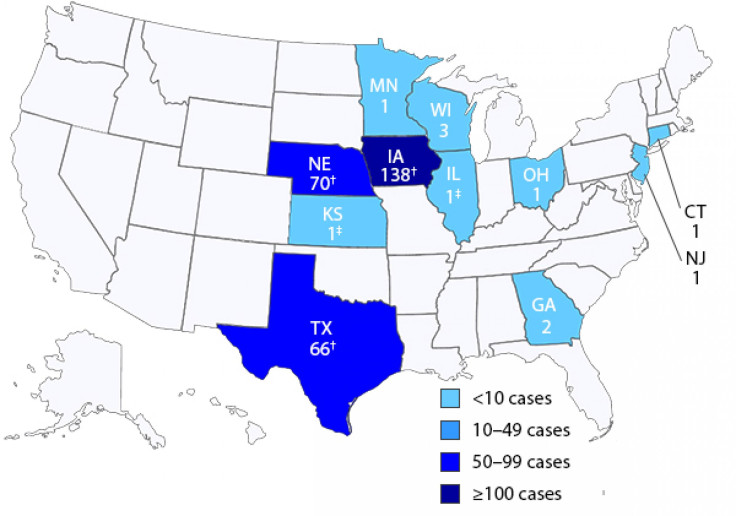Cyclospora Outbreak Update: CDC Reports Over 285 People In US Infected With Stomach Bug Across 11 States [PHOTO]

The Centers for Disease Control, or CDC, has released an update about the cyclospora infection outbreak that started in the United States in June. According to its report released Thursday, more than 285 cases of cyclospora infections have been reported in several states, including Iowa, Nebraska, Texas, Wisconsin, Georgia, Connecticut, New Jersey, Minnesota and Ohio. Illinois and Kansas have also had one reported case each. However, it is possible the infections were acquired in one of those original reporting states. The addition of New Jersey, Minnesota and Ohio bring the total number of states reporting infections up to 11.
According to the report, Iowa has the most reported cyclospora infections with 138 cases, followed by Nebraska with 70 cases and Texas with 66 cases. The CDC is investigating some cases in these three states where international travel may have had a factor in acquisition of the infection.
Cyclospora, a single-celled parasite, causes an intestinal infection called cyclosporiasis, marked by symptoms such as diarrhea, stomach cramps, nausea and fatigue, among other symptoms of stomach bugs.

Cyclospora infections tend to occur in people living in or traveling to the tropics and subtropic regions, where the parasite is endemic. It is usually spread when people ingest food or water contaminated with feces.
Eighteen people have been reportedly hospitalized in three states as a result of the outbreak.
The CDC is continuing to cooperate with the U.S. Food and Drug Administration and public health officials across multiple states to aid in the investigation of the source of the outbreak. According to a FDA press release, “It is not yet clear whether the cases from all of the states are part of the same outbreak.”
More cases are currently under investigation and will be published on the CDC website as they are confirmed.
The CDC and FDA advise the avoidance of food or water contaminated with feces and practicing safe food handling, including thoroughly washing produce and hands to prevent a cyclospora infection.
© Copyright IBTimes 2024. All rights reserved.












